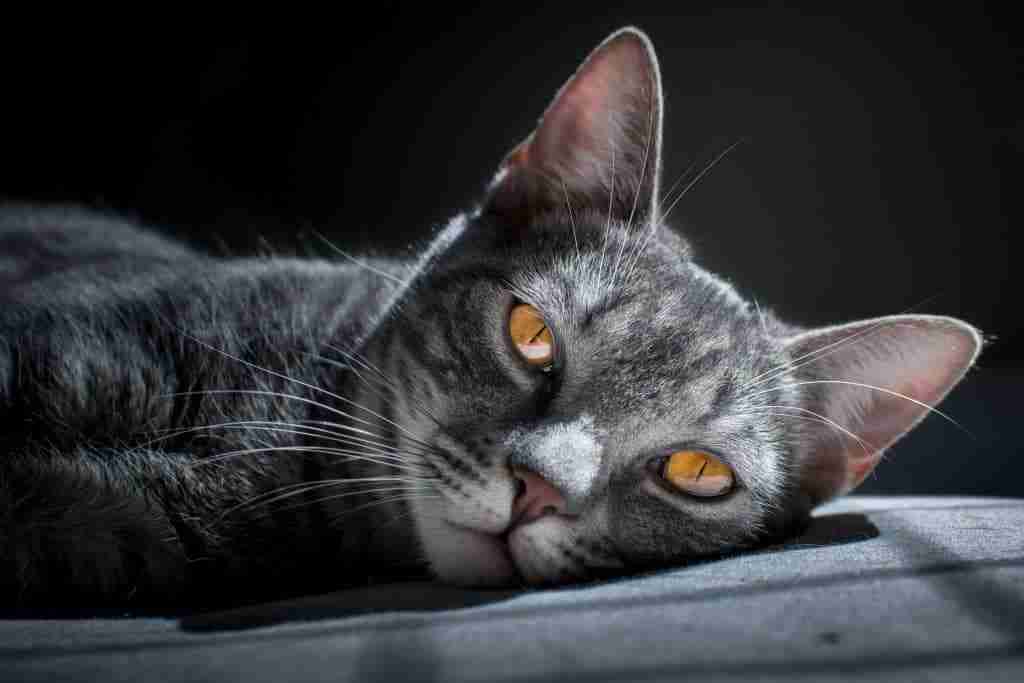Is your cat dragging butt on the floor? You know, that weird thing where they drop their ass and drag? Is your cat backing up and rubbing its ass against solid objects? Or is your cat rubbing butt over the carpet or other soft fabrics? If it is, your cat is “scooting”. When you watch your cat scooting you probably realize that your cat must have a real itchy ass! So what is the cause of this “scooting” and how can you cut it out? Check out the answers here.
What Causes Scooting?
What scooting isn’t is your cat marking territory. This type of behavior is caused by discomfort. Here are the main causes of this strange behavior.
Something Is Stuck To Their Butt
Their scooting might be caused by something relatively simple. They might have something stuck to their butt that they want to remove. Chances are if they have something stuck to their ass it is likely to be fecal matter. If fecal matter gets stuck in fur around the butt and dries out it can cause irritation. This might be the source of your cat’s itchy ass.
Allergies
If your cat is displaying this weird behavior then you have to consider they might have some sort of allergy. It could be that your cat has sensitive skin caused by an allergy and if this sensitivity on the skin occurs in the butt area, then, well, they are going to scratch that itch…
A skin issue might arise from an allergy to dust mites, fleas, molds or even pollen…
Scooting might not be related to a skin issue. Your cat could be allergic or sensitive to something in their diet.
Lots of modern cat foods contain ingredients that cats are really not evolved to eat. As a result, their digestive tract could be reacting badly and giving rise to itchy ass. Grains, excessive carbs – soy, potatoes, peas and the like, are really not something cats are developed to eat.
These ingredients are not really species-appropriate cat food and can give rise to allergies and sensitivities in some cats. Your cat’s itchy ass could be down to cat food containing too much of these ingredients.
You won’t be the first or the last cat owner to give your cat the same food, day in, day out. Sometimes, with picky cats, you just have to find something they are prepared to eat and let them get on with it. Problem is that sometimes food sensitivities build up stealthily over time till you get to the point that a dam bursts and they suddenly your cat has problems and issues that they never had before.
These sensitivities could be the root cause of your cat dragging butt.
Worms/parasites
If your cat is free to venture outside and has a tendency to hunt then they may be scooting because they have picked up worms or other parasites on their travels.
Worms and parasites that might cause scooting issues include whipworms, giardia, coccidium, and cryptosporidium. Eating infected prey and drinking from unclean water sources are the usual ways your cat will end up ingesting parasite and worm eggs and becoming infected
Once infected your cat might start to suffer from issues within the digestive tract caused by these parasites. They end up suffering from diarrhea, loose stools and the like that can lead to issues with stools stuck to their butt – causing irritation or can lead to impacted anal glands.
Impacted Anal Glands
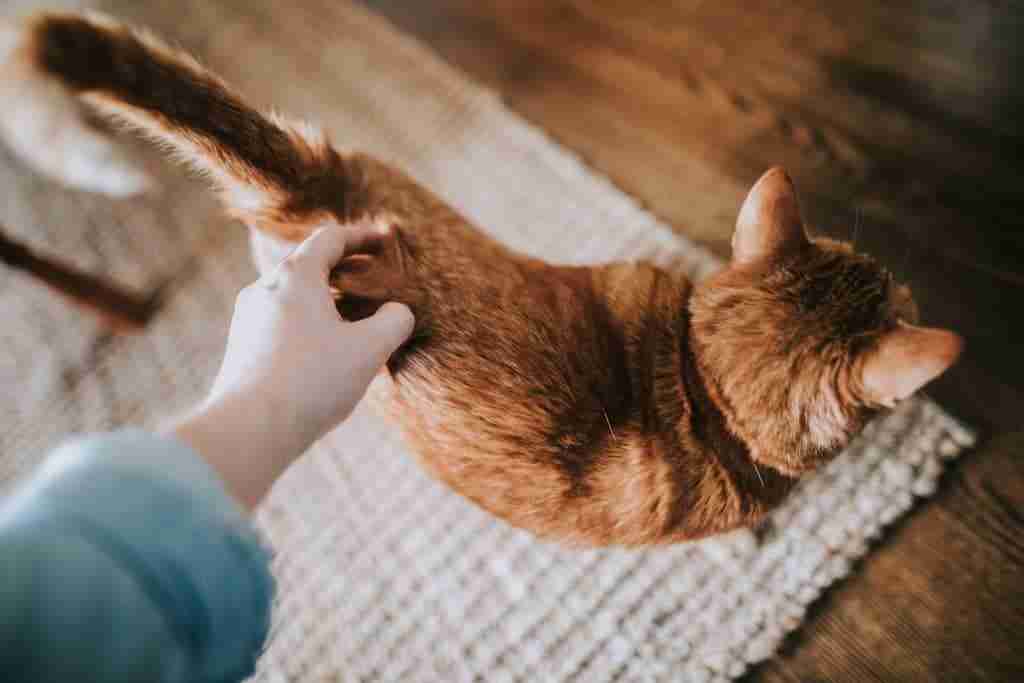
Your cat has anal glands. These are basically two little sacs that sit at a twenty past seven positions on your cat’s ass. They hold an oily fluid that is squeezed out of the glands as stools pass by.
If your cat has diarrhea, the fluid won’t get squeezed out of the glands as there is no stool volume to press out the glands. Likewise, if your cat is a chubber they may well have poor muscle tone that makes squeezing empty these anal glands impossible.
Therein lies the problem. If the anal glands don’t get emptied they get blocked up and impacted. This in its self can be irritating for the cat but impacted anal glands are also prone to infection which will definitely give your cat a sore ass!
How Can You Fix Cat Scooting?
Ok, so you have identified that your cat is scooting and you know the most likely causes. What can you do to fix the problem? Here is what you can do to fix the issue
1. Check And Clear Debris From Butt Area
Don’t be squeamish, get in there and see what is going on. You are going to want to have some damp cotton balls to clean that butt up.
Check for obvious clingers and remove them if necessary. Use the damp cotton balls to mop up the area in case there is any dried on remnants causing irritation.
Hopefully, that will fix things up – but keep an eye on the situation, if your cat has diarrhea you need to keep the back end clean until you get the gut issue resolved. If they have diarrhea for more than a day you need to get down to a vet before they get dehydrated.
2. Change Out Diet
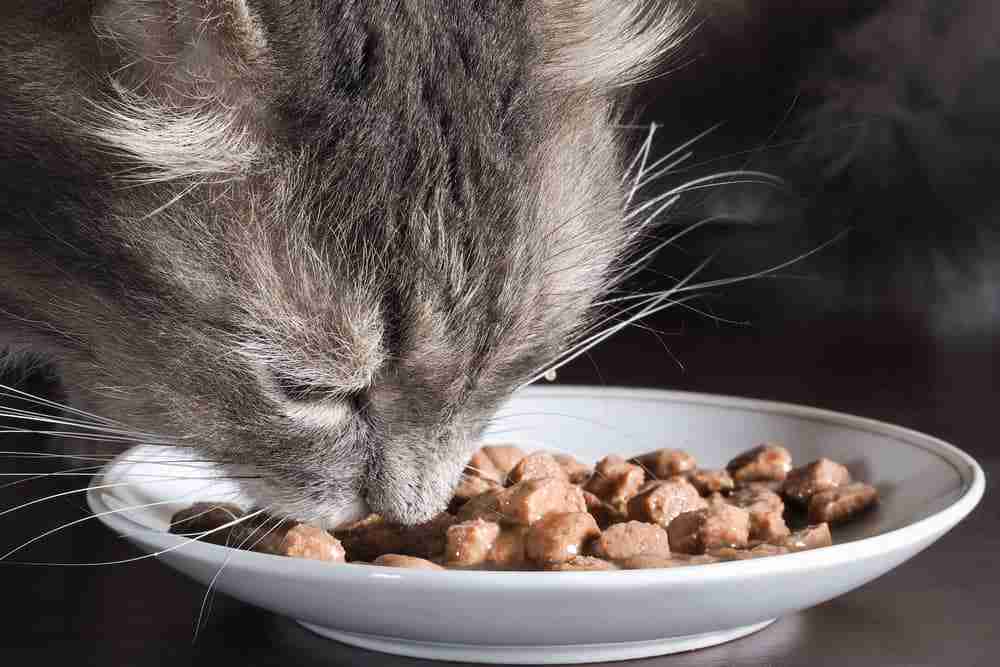
This is probably a good time to review your cat’s diet! Ideally, you want to address the carb situation and that means you will probably have to go to wet food which will be beneficial from a carb and dehydration/diarrhea standpoint.
You need to select food that they won’t be sensitive to. Ideally, you should rule out carbs, beef, and tuna. A high protein low carb cat food with chicken as the base is a good point to start at.
Just the act of changing out the food might be enough to settle things down.
If your cat is on a dry diet, even the cheapest wet cat food is going to be lower carb than the dry food. Additionally, wet food will give them plenty of moisture if they have got the runs. Dehydration can be a killer
3. Treat For Worms
If your cat is scooting and you can’t remember the last time they got wormed then you should get straight on that! Really you want to go for a vet based treatment.
You can try natural remedies but often they won’t target all the possible parasites and worms in one hit. Medication issued by a vet is punchy stuff that will definitely rule out parasites as a cause of the issue.
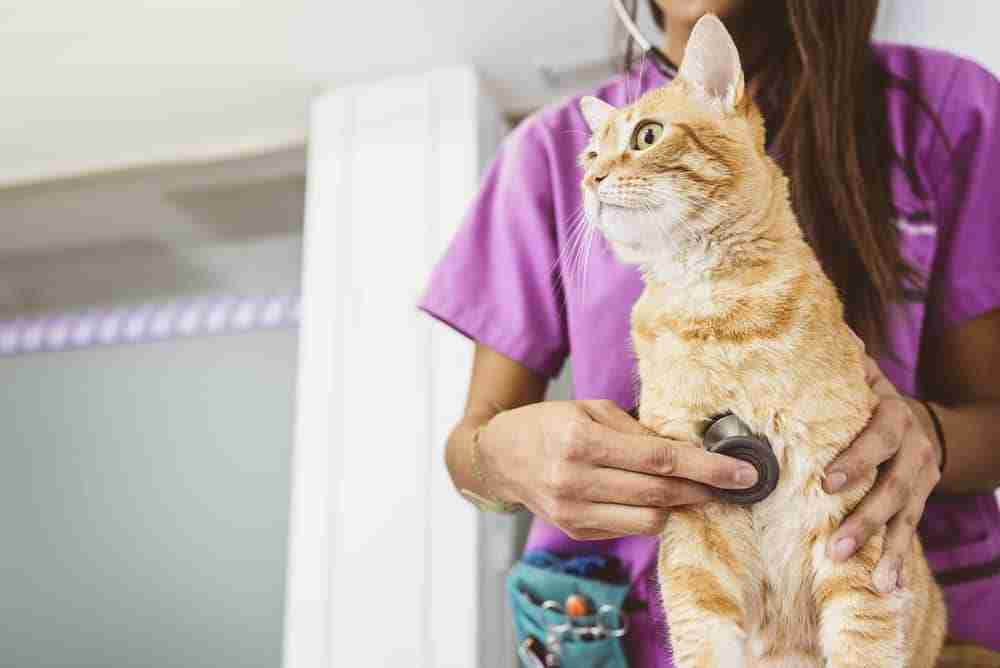
4. Treat Allergies
If you do suspect an allergy – such as to pollen, dust or the like, then you can get treatment for the discomfort these allergies can create. A vet will be able to prescribe anti-itch medication – usually a cream – that can be applied to the area and can reduce irritation
5. Investigate Anal Glands
If your cat is dragging butt and a quick wash down or diet change doesn’t rectify the problem then really you want to get down to the vets. The vet will be able to attend to any worming issues, allergy issues and of course can deal with impacted or blocked anal glands.
It is important to seek professional help with issues surrounding problems with anal glands. If the glands are infected they won’t clear themselves up over time, your cat will need medication and professional help.
If the glands are the source of the problem the vet will want to investigate for underlying issues that have given rise to the problem – they will look at the cat’s weight, diet, potential for parasites.
The vet will probably relive the glands in the short term, medicate to avoid potential infection and worm the cat or change the cat’s diet to reduce the likelihood of anal gland issues going forward.
Cat Scooting & Constipation
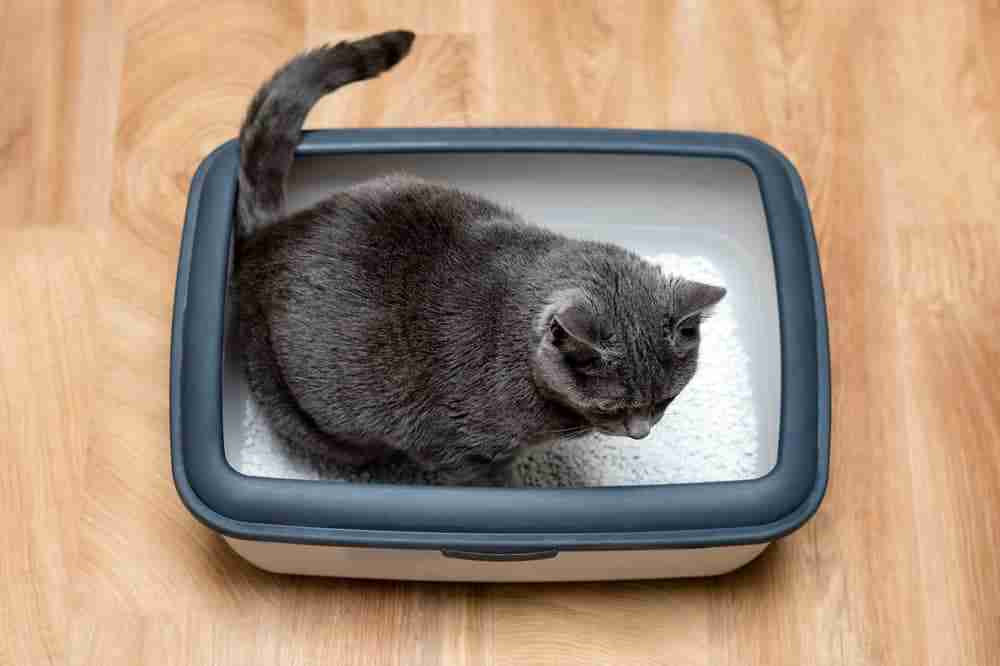
Is your cat butt scooting whilst suffering from constipation? If so, the chances are that your cat has an issue with its anal glands.
If your cat has painful anal glands it will find it painful to defecate. Cats that have issues defecating get constipated very easily, particularly if they are on a dry diet.
The problem then grows. If they are constipated and not defecating then they will not naturally empty their anal glands and can become increasingly impacted potentially leading to infection.
The answer to this issue is to get the cat’s painful anal glands resolved with a vet visit and change diet to get the constipated cat regular once more.
A wet diet will add the necessary lubrication, contain highly digestible food to reduce stool volume and hopefully get the digestive tract moving again. Check out some of the best cat food for constipation here.
Cat Scooting & Diarrhea
If your cat is scooting but also suffers from diarrhea then this could be caused by either a sensitivity to something in their diet or worms/parasites.
In the first instance, the easiest thing to do is to change their diet. They might be sensitive to an ingredient and removing that ingredient might be enough to resolve the issue.
Try to put your cat on a chicken-based wet food diet. The chicken is unlikely to cause sensitivities and wet food diets eliminate a lot of ingredients that cats can become sensitive to. The wet food will also keep moisture levels up helping your cat to avoid dehydration that diarrhea might cause.
If diarrhea does not clear up within 24 hours then you should take your cat to a vet – they may have parasites causing issues. A vet will be able to quickly resolve worm and parasite issues with targeted medication…
Cat Scooting & Vomiting
Cat scooting and vomiting is a serious issue that needs vet treatment. The most likely cause of vomiting and scooting is often worms.
Don’t try to treat worms yourself with natural remedies or over the counter medications. These are often less effective than vet prescribed treatments.
A natural remedy might not be able to get rid of all the potential different worms your cat could potentially suffer from.
Cat Scooting After Pooping
If your cat is scooting after pooping but does not seem to suffer from diarrhea, vomiting or constipation then chances are that the anal glands are not emptying properly. This might be causing irritation that only affects your cat after they have pooped.
If this is the case you need to get your cat checked out by a vet. If you leave this to fix itself the chances are that the cat could get an infection and end up suffering more and costing you more in bigger vet bills.
When it comes to cat scooting if in doubt visit the vet. There really is not a great deal you can do for your cat apart from check for obvious signs of irritation or change out diet.
A vet visit can take care of parasites, the anal glands can be manually relieved, the vet can offer anti-itch creams or fix infections with antibiotics.
Cat scooting is not an immediate emergency but needs resolving within days. Cases brought on by diarrhea or vomiting are particularly important to solve in a timely manner as both situations can lead to bigger health dangers for your cat.
